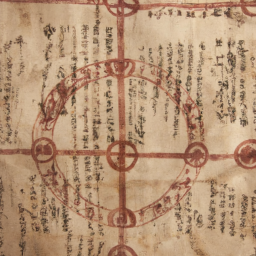Since the dawn of civilization, humankind has been grappling with the concept of financial management. While modern tools like savings accounts, budget planners, spending trackers, and wealth management systems have become commonplace, it is fascinating to discover that ancient civilizations also had their own methods of saving and managing wealth.
Civilization existed before money, but probably wouldn't have gotten very far without it. In ancient times, barter systems were prevalent, where goods and services were exchanged without the need for a standardized form of currency. However, as societies grew more complex and trade expanded, the need for a more efficient and reliable means of exchange became apparent.
One of the earliest known examples of a system similar to modern-day savings accounts can be found in ancient Mesopotamia. The Sumerians, who inhabited this region around 2000 BC, developed a sophisticated financial system that included the use of clay tokens as a form of accounting. These tokens represented various commodities such as livestock, grain, and other valuables, and were used to keep track of transactions and savings.
The Sumerians would store these clay tokens in clay envelopes, which acted as a primitive form of a savings account. By depositing their tokens in these envelopes, individuals could save for future expenditures or emergencies. This early form of saving allowed the Sumerians to accumulate wealth and plan for the future, much like modern-day savers do with their bank accounts.
In addition to savings accounts, the ancient Sumerians also practiced budget planning and wealth management. They kept detailed records of their income and expenses, using clay tablets to track their financial transactions. By monitoring their finances closely, they were able to make informed decisions about how to allocate their resources and ensure their financial stability.
Furthermore, the Sumerians developed a rudimentary form of a spending tracker, where they recorded their purchases and expenditures to monitor their cash flow. This practice helped them avoid overspending and allowed them to save for larger purchases or investments.
The financial practices of the ancient Sumerians laid the foundation for modern-day money management techniques. Their innovative use of clay tokens, envelopes, and tablets as tools for saving, budgeting, and wealth management set a precedent for future generations to follow. By studying the financial practices of ancient civilizations, we can gain valuable insights into the origins of our modern financial systems and appreciate the ingenuity of our ancestors.
In conclusion, the ancient Sumerians were pioneers in the field of financial management, developing early forms of saving, budget planning, spending tracking, and wealth management that laid the groundwork for modern-day financial practices. By examining their innovative methods, we can learn from the past and apply their lessons to our present-day financial challenges. Civilization existed before money, but probably wouldn't have gotten very far without it.
